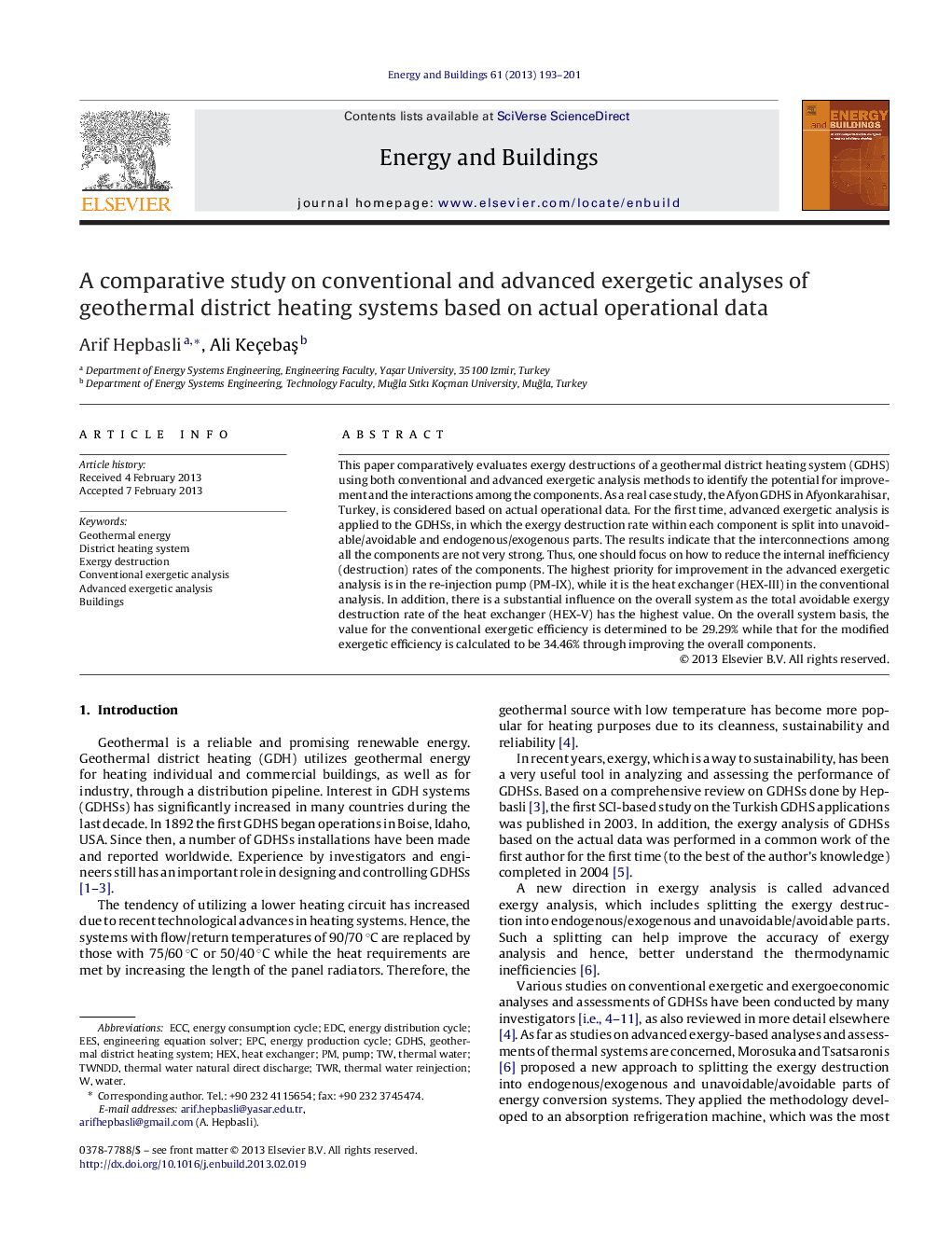| کد مقاله | کد نشریه | سال انتشار | مقاله انگلیسی | نسخه تمام متن |
|---|---|---|---|---|
| 263453 | 504075 | 2013 | 9 صفحه PDF | دانلود رایگان |

This paper comparatively evaluates exergy destructions of a geothermal district heating system (GDHS) using both conventional and advanced exergetic analysis methods to identify the potential for improvement and the interactions among the components. As a real case study, the Afyon GDHS in Afyonkarahisar, Turkey, is considered based on actual operational data. For the first time, advanced exergetic analysis is applied to the GDHSs, in which the exergy destruction rate within each component is split into unavoidable/avoidable and endogenous/exogenous parts. The results indicate that the interconnections among all the components are not very strong. Thus, one should focus on how to reduce the internal inefficiency (destruction) rates of the components. The highest priority for improvement in the advanced exergetic analysis is in the re-injection pump (PM-IX), while it is the heat exchanger (HEX-III) in the conventional analysis. In addition, there is a substantial influence on the overall system as the total avoidable exergy destruction rate of the heat exchanger (HEX-V) has the highest value. On the overall system basis, the value for the conventional exergetic efficiency is determined to be 29.29% while that for the modified exergetic efficiency is calculated to be 34.46% through improving the overall components.
► Advanced exergy evaluation of geothermal district heating systems for the first time.
► Determining conventional exergy efficiency of the whole system to be 29.29%.
► Calculating modified exergy efficiency of the entire system to be 34.46%.
► Deducting inefficiencies of the system components for possible improvements.
Journal: Energy and Buildings - Volume 61, June 2013, Pages 193–201